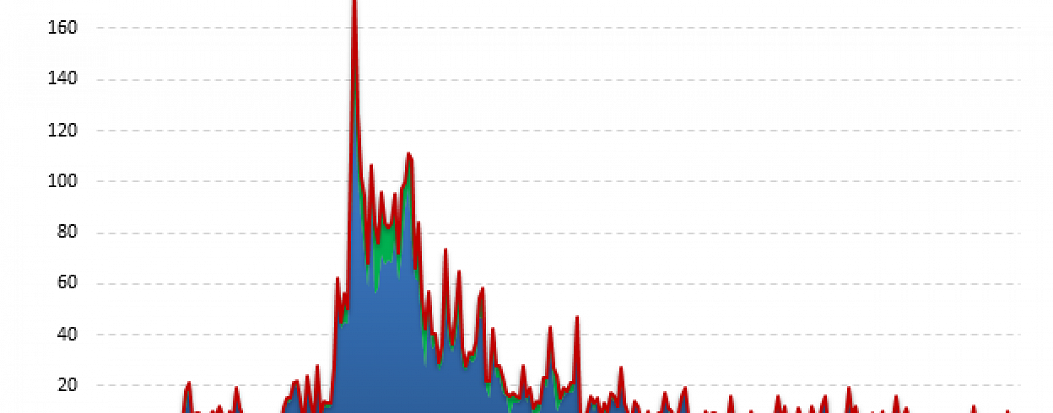
Recent monitoring of .RU and .РФ country-code domain name registries carried out by Coordination Center for TLD .RU/.РФ has shown that the number of registrations related to COVID-19, measures to contain the pandemic, as well as coronavirus vaccines is decreasing.
In the first month of the fall, only 104 Coronadomains were registered in the .RU zone, and 16 in .РФ. The total increment was 120, a little over 50 percent of what it was in August: 228 new coronavirus-related domain names in both .RU and .РФ. On average, seven Coronadomains were registered in .RU and one in .РФ every two days in September.
Over the entire period of observation (from January to September 2020), 4,291 domains containing the words corona, covid, pandemic, vaccine and others were registered in .RU and 875 in .РФ; their total number is 5,166 in both Russian domain zones.
Importantly, the purpose of monitoring the .RU and .РФ registries is to identify potentially dangerous domains and reduce any possible harm from them through partnerships with competent organizations. Over the nine months of the monitoring, Kaspersky Lab, which has the status of a competent organization, flagged 1,870 coronavirus domains, including 1,569 in .RU and 301 in .RF, as posing the ‘threat of data loss’ – about 40 percent of the total number of Coronadomains.
Despite the relatively small number of dangerous domains, we advise you to carefully consider each web resource and email to avoid cyber fraudsters who are using the current global uncertainty for malicious purposes.
First of all, stick to official sources of information about the coronavirus such as the Russian website стопкоронавирус.рф. Install anti-virus software on each device with an internet connection; enter your personal data, account data and online banking details only on websites that support the encryption function (a prefix https:// before the URL); check domain names for typos; and do not open executable files from spam emails.
More instructions and advice on dealing with potential cyber threats such as phishing, botnets, malware, or unauthorized access to data, as well as telephone hotlines of competent organizations, can be found on the website of the Coordination Center’s Domain Patrol project.